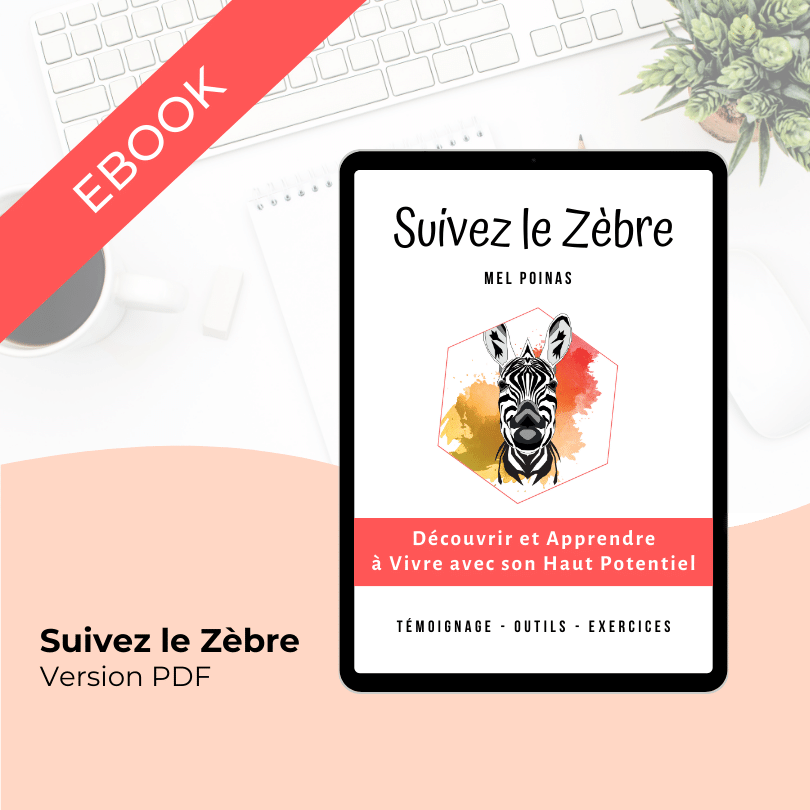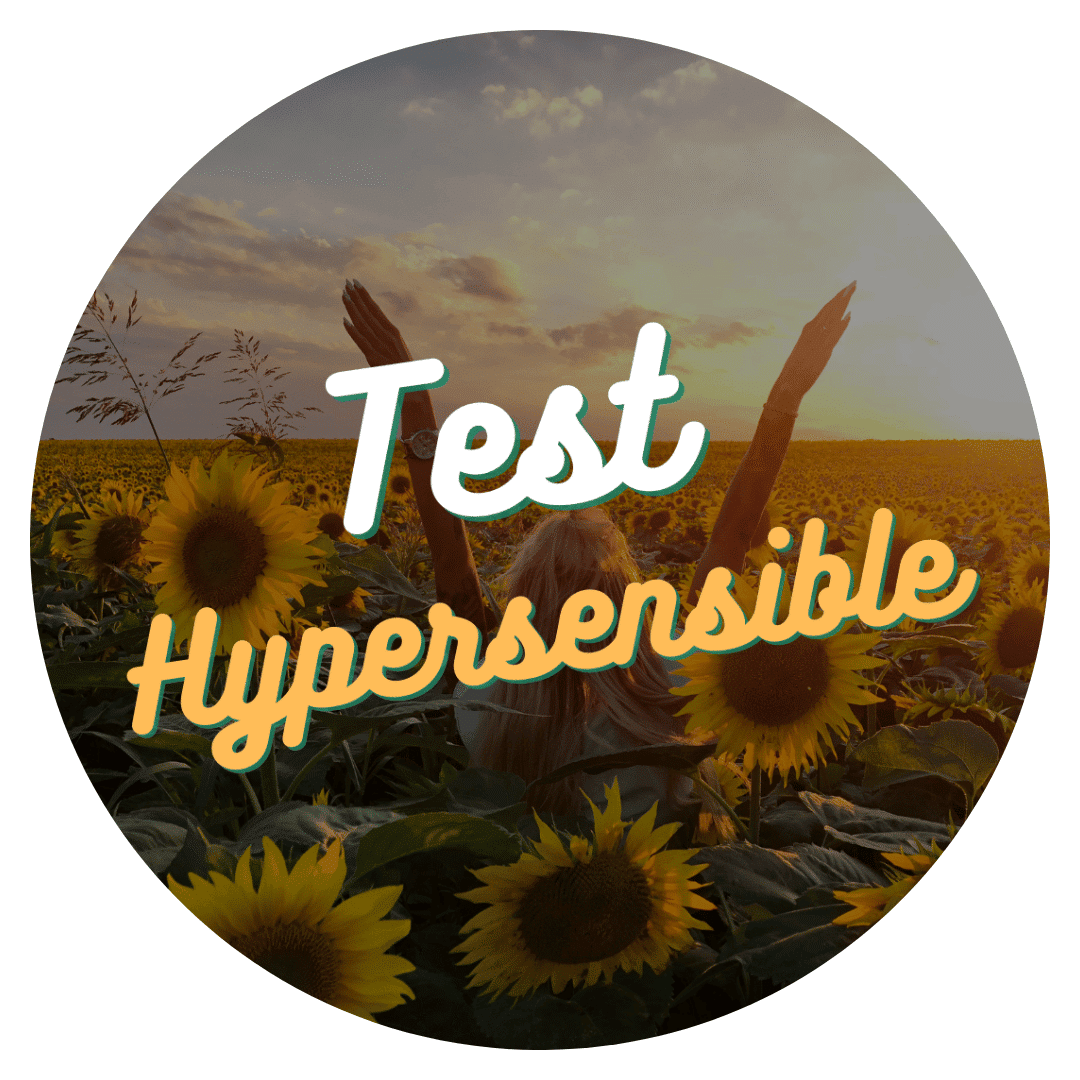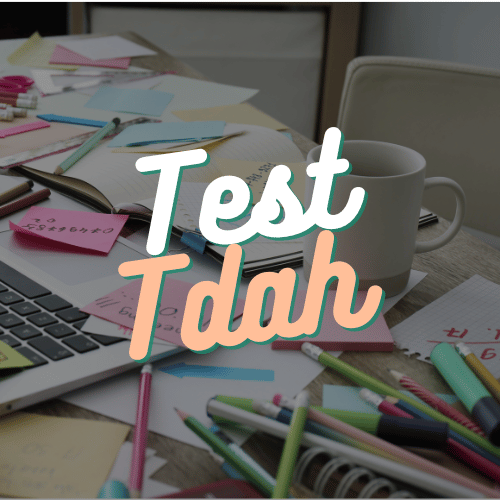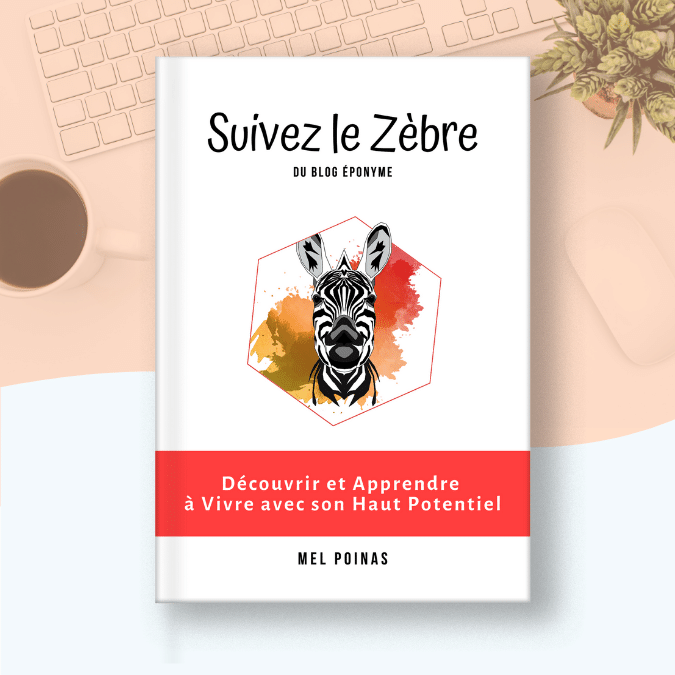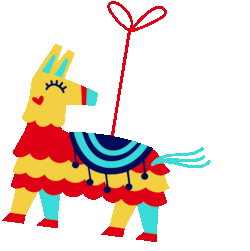How I knew I was a zebra
Jt’s just over a year since I created Follow the Zebra that I’ve never really explained in a dedicated article how I knew I was gifted.
It’s actually quite simple… I took the WAIS IV test (Wechsler Adult Intelligence Scale) at a psychologist who specializes in giftedness, i.e. who is qualified to detect precocious children and gifted adults.
I’ve started to create a shrink directory, as a resource on the site, to help you find the right one in your area, it’s here: psychologist specialized in giftedness by region.
How did I come to understand that I was a high-potential person?
When I was young, I don’t know if I really thought about whether I was different. Precisely because in adolescence, you want to be different! We “create” an identity precisely to feel unique (generally to belong to a group, or to be accepted by the group). We’re looking for our style, our uniqueness… I’ve always had this feeling that my adolescence had lasted a very long time – until college, in fact!
Some years were simpler than others, but at the time I didn’t necessarily see why some had turned out to be complicated and others had gone too well.
A gap I noticed during my higher education
It wasn’t until I got into higher education, particularly Master’s, Bac+4 and Bac+5, that I started asking myself a few more questions. It was hard to know what I wanted to do. I didn’t really feel like working. For me, it was officially the end of childhood/adolescence, and I didn ‘t really want to enter the adult world.
I think I sensed a little of what was about to happen. When I entered the world of work, particularly through internships and work-study programs, I clearly felt mega-displaced. I told myself that professionally I wasn’t going to make it. I didn’t understand and people didn’t understand me.
It was a real dialogue of the deaf! As the others seemed to be able to do it, I thought it was me…
Undetected adult giftedness in the workplace
Strangely enough, I’ve never had any trouble finding work. On the other hand, I had a hard time keeping them! Either because thepeople who managed me didn’t get on at all, or because I quickly got bored and needed a change.
As a result, I changed boxes every year or so. And it was exhausting. Personally, it was a bit the same, I found it hard to stay in a relationship, I’d stay for a year and then feel like I couldn’t do it anymore.
I had been working for about 2 years when I decided to really go into therapy. I’ve had several therapies, with different shrinks, without much success… What came out of each therapy was basically that you’re a normal, well-integrated person with a slightly extralucid and impulsive side. This conclusion didn’t really suit me…
HPI, Zebra, Gifted and personality disorders
Since I couldn’t find anyone I felt I could trust, I gave up a little… I started reading lots of psychology and personal development books. I then became very interested in behavioral and personality disorders. Since I was convinced that I wasn’t normal, I looked for an explanation in people who were a little offbeat, atypical. In particular, I thought I was bipolar.
Today, when I think back on that period, I find it completely crazy… My life has become so much simpler since I was detected as a zebra!
Other “accidents” in my life led me back to therapy, but this time I called a well-known bipolar association to get the name of a specialist psychiatrist.
The therapy and psychologist who helped me understand
The psychiatrist thought, um, extra-lucid, impulsive, with strong opinions and mood swings? Go > Borderline!
No, I’m not borderline. But then I did some research on borderlines (because at first, I believed what the psychiatrist had told me!). Fortunately, he sent me to therapy with a psychologist specializing in cognitive science.
It was through working with her that I realized I had potential in a number of areas. I’m not talking about talent or gifts, but about potential. She was not a specialist in giftedness. As a result, she couldn’t make me take the tests. And in the end, it was better that I met someone with whom I hadn’t had therapy.
At first, I found it hard to believe that I could be one of those people called gifted or high high potential . I thought, well, if he doesn’t know me at all, he’ll be able to evaluate me objectively… I was always a little impostor syndrome. No, I can’t really succeed. I’ve never done anything special, I’m not smarter than the others…
Taking the famous WAIS IV test
So I made an appointment to see him. I called in May and had a first appointment in August. The first appointment lasted an hour. We talked about me, of course! He asked me questions to assess how I functioned and how I reacted.
I don’t want to reveal too much here, because for me it’s a very important personal step in the discovery of one’s giftedness. And I don’t want to steer you too far. 😉
Following this interview, he suggested I take the WAIS IV. That was 15 months ago. I remember finding it loooooong. I’d say 2 hours in all, maybe 2.5 hours. It’s a series of subtests, some timed, some not. It’s quite varied.
During the WAIS IV test
The psychologist is with you throughout the test. Here again, to pass a test like this, I think it’s best to feel comfortable and confident with the person in front of you. Quite simply because it prevents you from being thrown off balance during the test. You stay focused, you don’t ask yourself a billion questions, he likes me / he doesn’t like me etc…
During the test you can have the answers to the questions. In any case, I wanted to know if my answers were right or wrong to get an idea of whether I’m completely out of my depth or not! Here again, it’s up to each individual, some prefer not to know.
Then you have to wait for your psychologist to correct the test. I think it took two or three weeks. Then we spend another hour together to look at the test, analyze the results and, if necessary, talk about the future.
Some gifted people who discover this start therapy with the psychologist who gave them the tests. I preferred to continue seeing my super shrink specializing in cognitive science, with whom I’m making excellent progress. One of my friends who was detected didn’t feel the need for therapy afterwards.
How much will it cost to take the WAIS IV with a psychologist specialized in giftedness/high potential?
It’s clear that this represents a budget… Depending on the region, prices can vary from fifty to a good hundred euros. Click HERE for a list of specialized psychologists in France.
For my part, the budget was 300 euros for the 3 sessions:
– first interview
– test
– test correction
– debriefing interview.
Why take the WAIS IV test?
I can’t answer for you. I’m not one of those gifted gurus who say that all the people who don’t pass the test are fakes and aren’t really gifted. You have to have the little label: official HP to have the right to give your opinion!
I have to admit I find it hard to understand these people. What do they care if you don’t want to take the test? Anyway, that’s another debate….
The only person who knows what to do or not to do is you! Never let anyone choose for you, and above all never let anyone judge your choices or judge you for your choices.
Some zebras need validation. This was my case, I had to know, I couldn’t stay with this doubt: is this it or am I really crazy and maladjusted? Others don’t care, they don’t need to know. They’re fine just the way they are, and you don’t need a test to put them in yet another box. ^^
It’s up to you! 🙂 In any case, if you want the good old HP / Zèbre / Surdoué badge, as we love them in our country, you have to take a test with a certified psychologist. It seems to me that Mensa also does tests, but I’d have to check, I haven’t read up on it. At school, priority is given to children who have already been detected in HP classes.
For those wishing to take the WAIS IV test
Go ahead, don’t worry, just be giftedit’s genetic, you’re born that way ! If you’re gifted and really miss your test, at worst you’ll have an IQ of between 115 and 130 (which is already well above the 90-110 norm)… And the sub-tests are there to give you a clearer idea of how you work.
Some HPs have very mixed results. They performed very well in some sub-tests, and a little less well in others… Others are median everywhere. Even if at the end there is a relative IQ value, the psychologist really takes the sub-tests into account.
When you’re gifted, it’s hard not to take the test. Or maybe it’s the shrink in front of you who puts you there… To err is human. If you have any doubts, you can retake the test at least two years after your first test.
Have confidence in yourself!
But above all, have confidence in yourself! It ‘s just a test… it doesn’t prove your real worth! It’s just a way of putting a label on you that’s defined in relation to a standard. But standards aren’t an exact science!
I remind you that I am in a relationship with someone who isn’t gifted, and she’s the most beautiful person I know, and I admire her in so many ways (that I’m incapable of being or doing).
There’s nothing more precious in this World than the feeling of existing for someone.
You can also find more information, resources and tools on Giftedness in Mel POINAS‘ book. With a lot of humor, Mel tells the story of the discovery of her giftedness and the routines she put in place to finally find her place!

Le livre
Écrit par une HPI !
Un témoignage et des solutions concrètes pour découvrir, comprendre et apprendre à vivre en étant HPI.

To go further, you can read
- Find a psychologist specializing in HPI
- Free personality test for zebra profile
- Online IQ test for a fee: danger?
- Giftedness : 20 characteristics of complex and laminar profiles
- How to take the WAIS 4 test?

